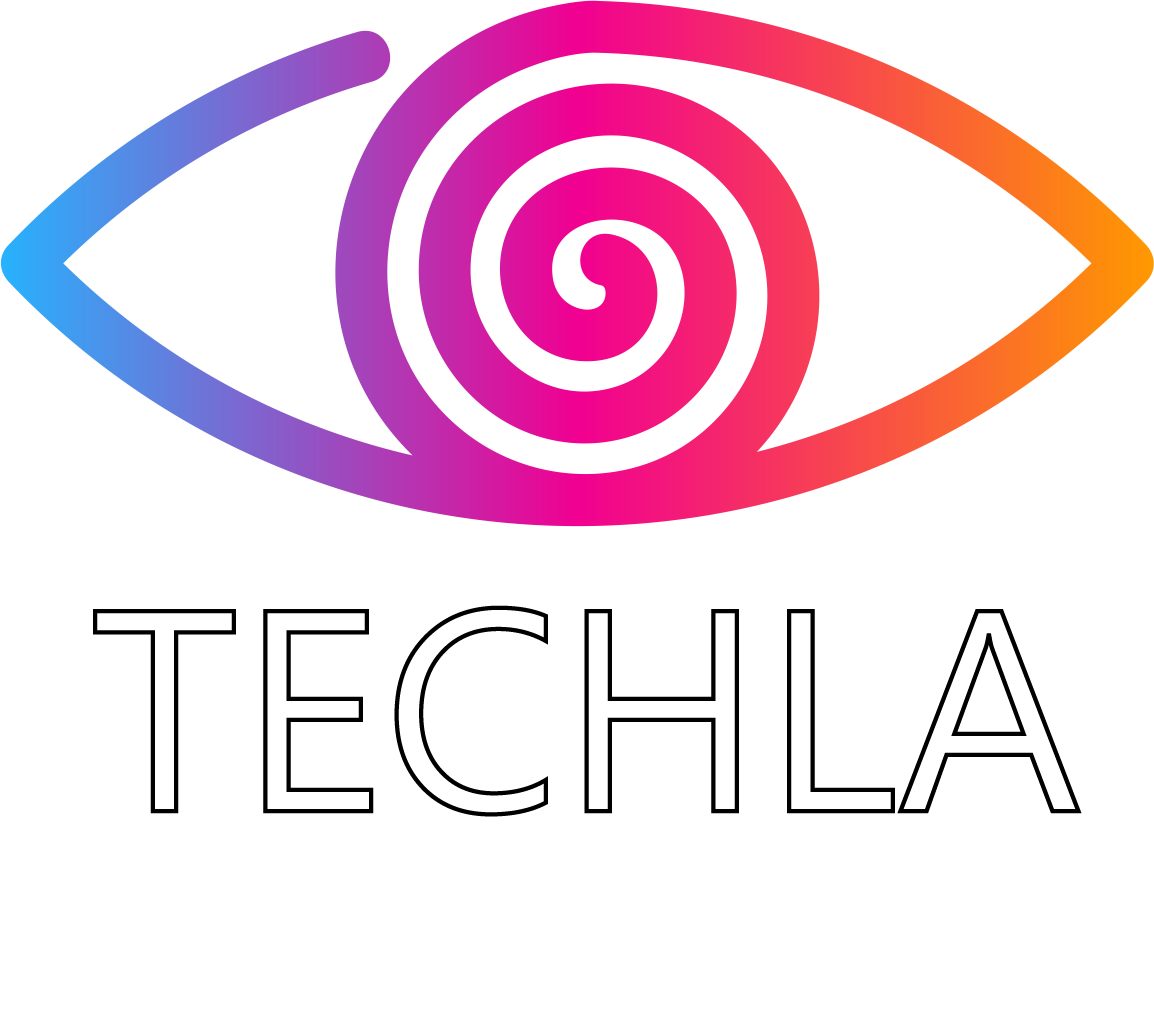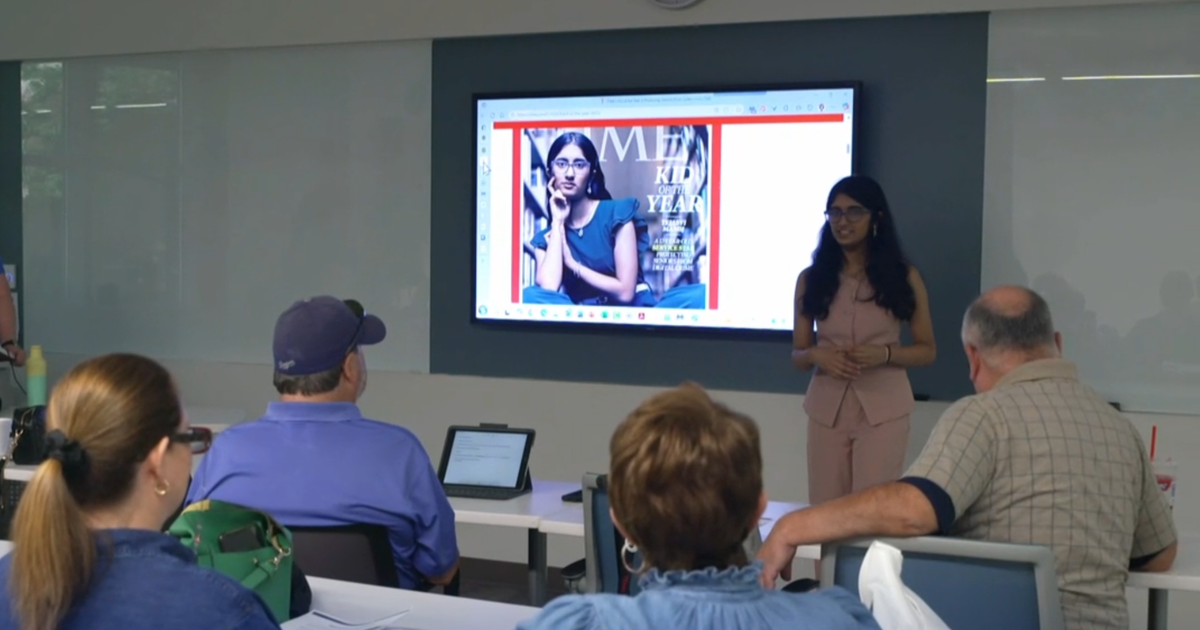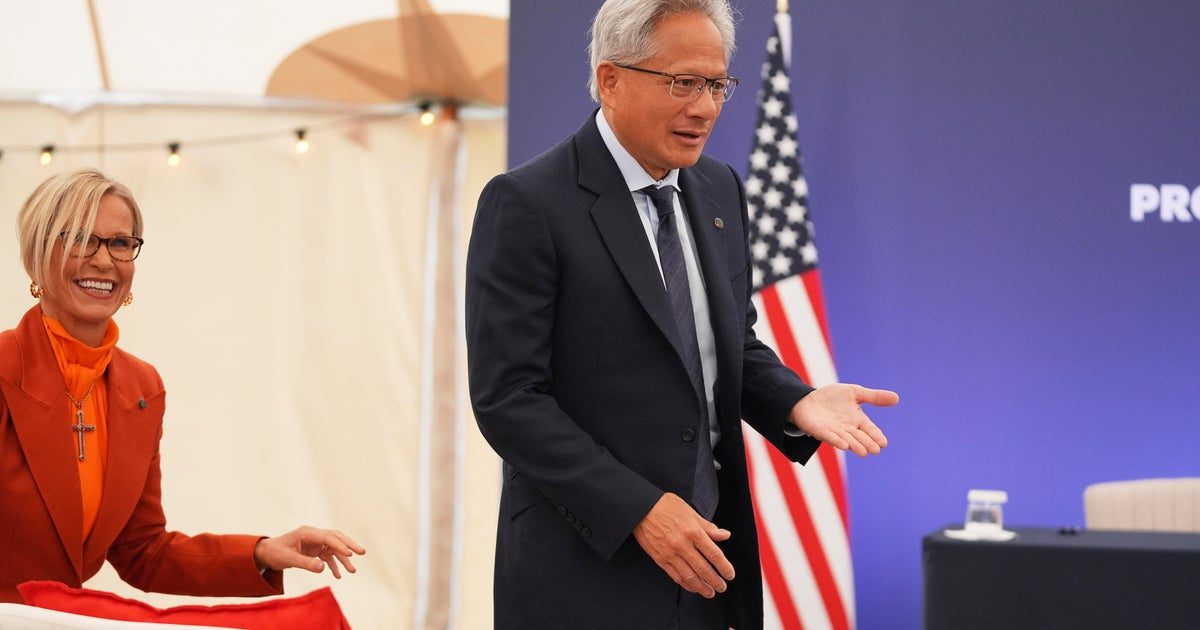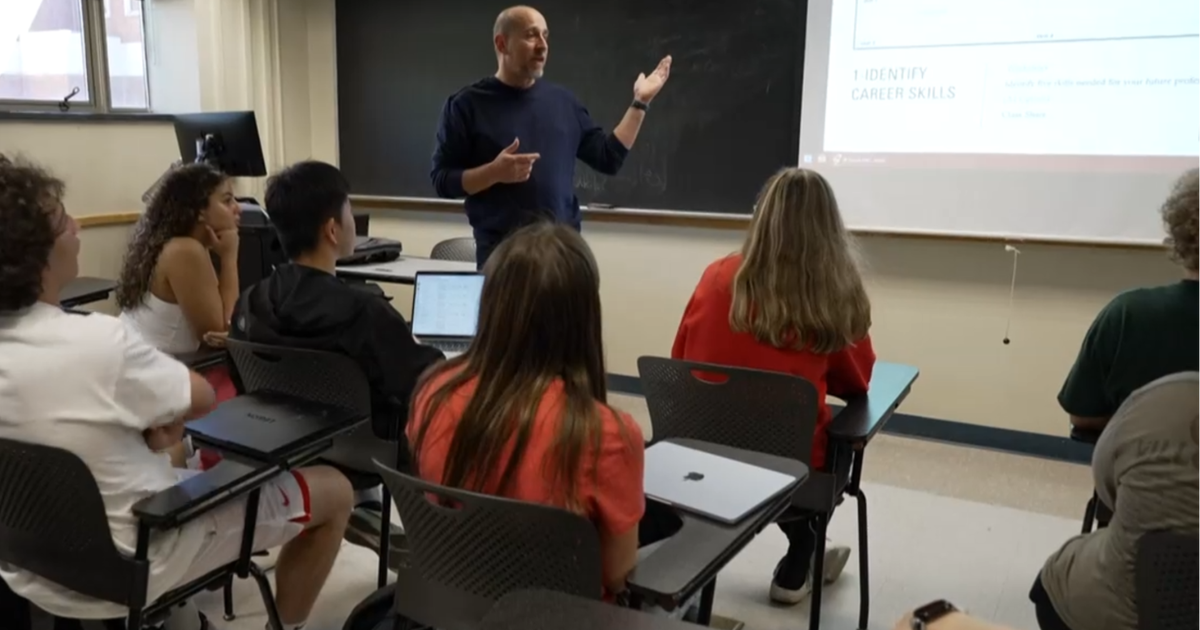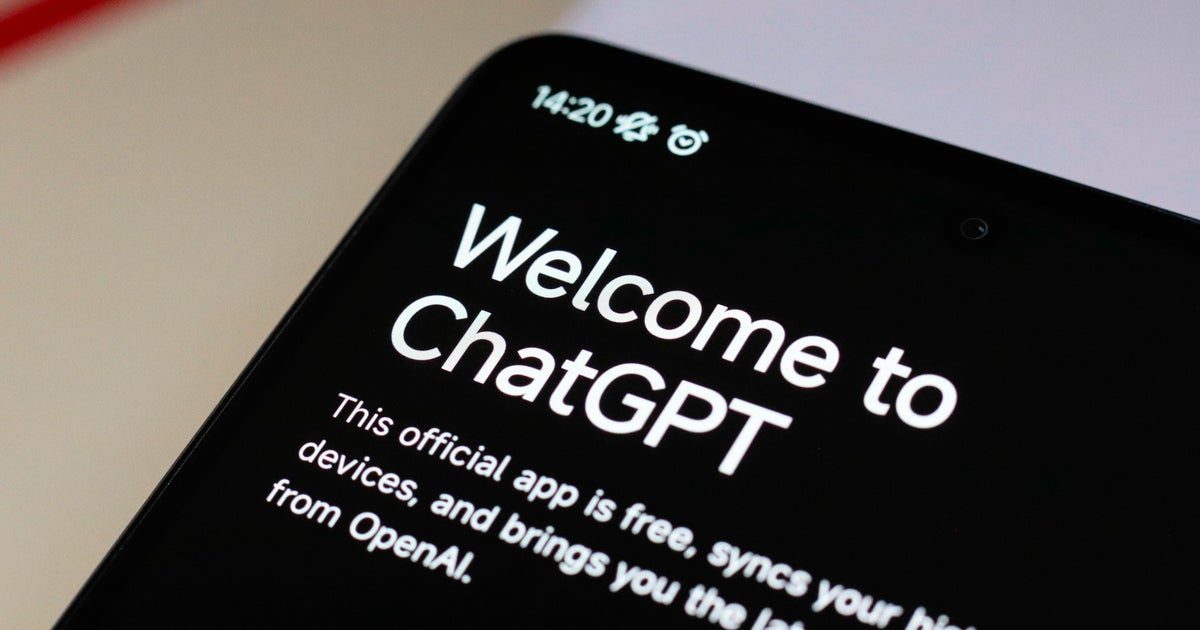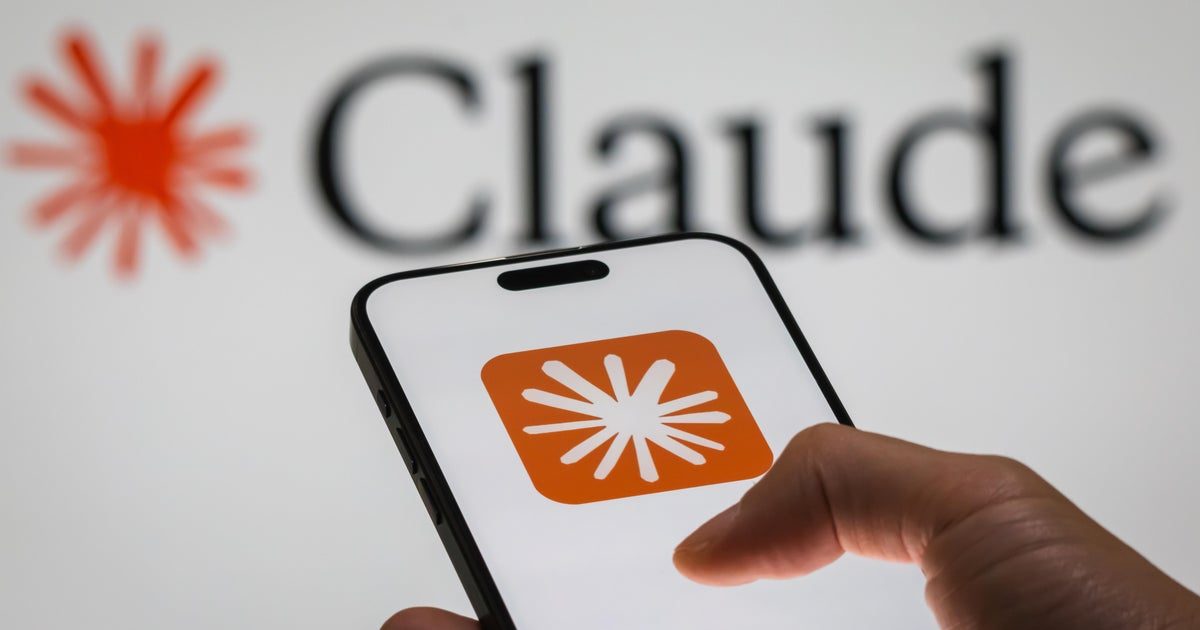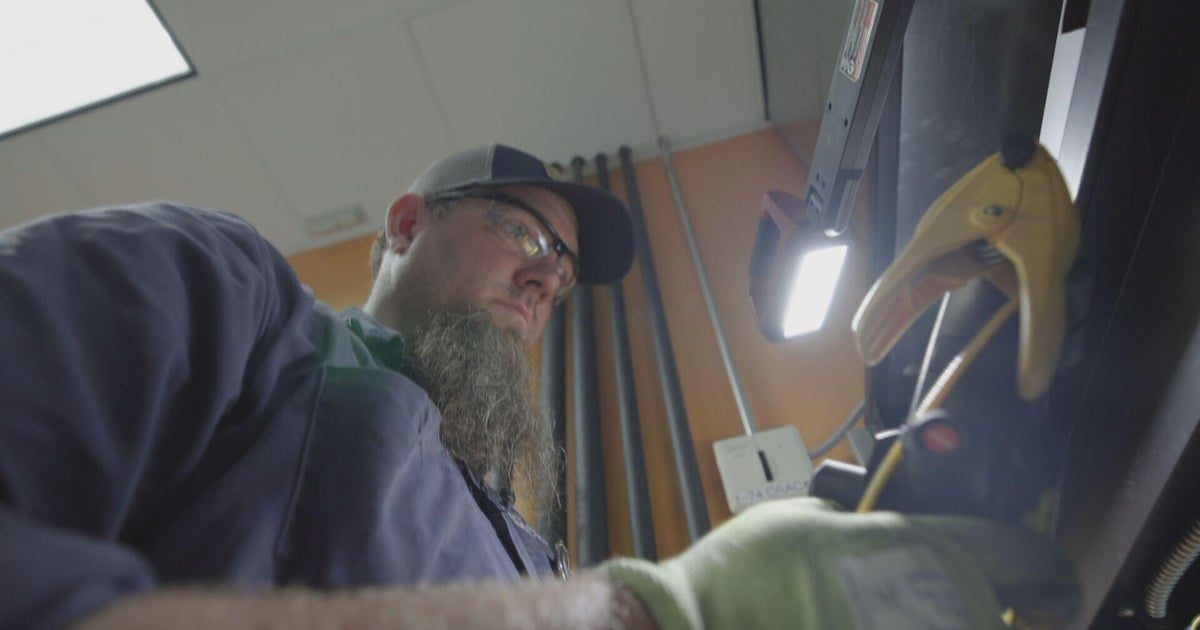Visually-impaired people are finding new independence with AI glasses. “CBS Saturday Morning” meets Emeline Lakrout, an active, visually-impaired New Yorker who has found new ways to use AI glasses to her advantage.
#glasses #foster #independence #visuallyimpaired #people
Artificial Intelligence
Plano, Texas — In many ways, Tejasvi Manoj of Plano, Texas, is an average 17-year-old.
“You’ve got to balance, like, all of your classes, and then you have college applications as well,” Manoj told CBS News.
But she’s spending much of her senior year of high school with a different type of senior, visiting older adult community centers, where she teaches them how to avoid being financially scammed.
Her calling started last year when Manoj’s grandfather was the target of a scam effort in which he received a text message from someone pretending to be a family member, claiming an emergency and asking him to wire $2,000 to a bank account.
Fortunately, Manoj’s grandfather and grandmother contacted family members and discovered the scam before wiring the money.
But the event was alarming to Manoj, who began researching and subsequently building a website and app called Shield Seniors, which shows what online scams look like and how to report them.
In July, she did a TEDx talk. And this week, she made the cover of Time magazine as its “Kid of the Year.”
“So I found out 12 hours before the article released,” Manoj said. “I was in so much shock. It was the greatest surprise of my life, honestly.”
Manoj says her research shows scammers are increasingly using artificial intelligence.
“There are so many people who are using AI to make scams seem more real,” Manoj said.
These frauds are becoming increasingly common. According to the FBI’s Internet Crime Complaint Center, people 60 and over who reported scams in 2024 lost a total of $4.8 billion — double the losses from just five years ago.
“Particularly when you’re older, you feel more vulnerable,” one woman who attended one of Manoj’s classes explained. “I think too, as you get older, you become less, computer savvy.”
Her app, which utilizes AI, allows users to detect potential scam efforts.
“So here I can add, like, a text message,” Manoj explains as she shows her website. “And then I can press ‘please identify whether this is a threat.’ So it’s saying that this request seems suspicious.”
Manoj has taken some computer science courses, but she said she mostly learned everything about coding and AI on YouTube.
“Obviously, my mission is to make sure older adults are aware of cybersecurity,” Manoj said. “And they shouldn’t be embarrassed about asking for help.”
She says her long-term plans involve continuing her work on Shield Seniors, but also finding ways to use “tech for social good.”
Manoj is still looking for funding for her app. She hopes landing the cover of Time will allow her to launch Shield Seniors by the end of the year.
Karen Hua is a CBS News national reporter based in Houston.
#Texas #teen #computer #science #fight #scammers
Nvidia, the world’s leading chipmaker, announced on Thursday that it’s investing $5 billion in Intel and will collaborate with the struggling semiconductor company.
The two companies will team up to work on custom data centers that form the backbone of artificial intelligence infrastructure as well as personal computer products, Nvidia said in a press release.
Nvidia said it will spend $5 billion to buy Intel common stock at $23.28 a share. The investment, which is subject to regulatory approvals, comes a month after the U.S. government took a 10% stake in Intel.
“This historic collaboration tightly couples NVIDIA’s AI and accelerated computing stack with Intel’s CPUs and the vast x86 ecosystem — a fusion of two world-class platforms,” Nvidia CEO Jensen Huang said. “Together, we will expand our ecosystems and lay the foundation for the next era of computing.”
The two companies said they will work on “seamlessly connecting” their architectures.
In morning trading, Intel shares jumped 25%, its biggest one-day percentage gain in decades. Nvidia shares added 2%.
For data centers, Intel will make custom chips that Nvidia will use in its AI infrastructure platforms. While for PC products, Intel will build chips that integrate Nvidia technology.
The agreement provides a lifeline for Intel, which was a Silicon Valley pioneer that enjoyed decades of growth as its processors powered the personal computer boom, but fell into a slump after missing the shift to the mobile computing era unleashed by the iPhone’s 2007 debut.
Intel fell even farther behind in recent years amid the artificial intelligence boom that’s propelled Nvidia into the world’s most valuable company. Intel lost nearly $19 billion last year and another $3.7 billion in the first six months of this year, and expects to slash its workforce by a quarter by the end of 2025.
The U.S. government stepped in last month to secure a 10% stake, making it one of Intel’s biggest shareholders. Federal officials said they invested in Intel in order to bolster U.S. technology and domestic manufacturing.
The deal is “bullish for U.S. tech,” Wedbush Securities analyst Daniel Ives said in a client note.
“This is a game-changer deal for Intel as it now brings them front and center into the AI game,” Ives said. “Along with the recent U.S. government investment for 10% (equity stake in Intel) this has been a golden few weeks for Intel after years of pain and frustration for investors.”
Nvidia, meanwhile, has soared because its specialized chips are underpinning the artificial intelligence boom. The chips, known as graphics processing units, or GPUs, are highly effective at developing powerful AI systems.
The deal between the two chipmakers comes as China moves to be less dependent on U.S. semiconductor technology. This week, Chinese officials reportedly forbade several large domestic technology companies from purchasing Nvidia chips, and Huawei announced that it was expanding its development of AI chips and manufacturing.
While Nvidia and Intel will work together to develop new chips, a manufacturing deal has yet to be struck between the two. The potential access to Intel’s chip foundries by Nvidia poses a risk to Taiwan Semiconductor Manufacturing Company, which currently manufactures the tech giant’s flagship processors.
#Nvidia #announces #billion #investment #Intel #collaboration
Ohio State University launches initiative requiring that students study AI
Columbus, Ohio — College freshmen Ashlee Croll and Brooklyn Baldwin are part of something new this fall at Ohio State University that will infuse artificial intelligence lessons into every major.
“As a bio major, you have to take a lot of hard science classes, math classes,” Croll told CBS News. “So, there’s going to be struggles along the way that, you know, I’m not going to be able to access a tutor all the time. So I think AI will be a little helpful in that.”
The goal of the initiative, AI Fluency, is that students, beginning with the class of 2029, will graduate and be fluent in both their major and AI.
“I hope that they learn how to use it effectively for, you know, brainstorming, for organizing thoughts, but they don’t replace, sort of, their critical thought with it,” said Kevin Richards, an assistant language professor at OSU.
Beginning this year, all freshmen are required to take a course in generative AI and multiple workshops aimed at real-world applications to help them master the technology.
In the last decade, the number of job listings asking for AI skills has soared by 619% in the United States, according to a recent analysis from the Brookings Institution, a Washington, D.C.-based think tank. In the last year alone, the number of AI-themed job postings has increased by 103%, Brookings found.
“It’s a thing that really helps you do your job better,” Luis von Ahn, CEO of Duolingo, the popular app that teaches foreign languages, told CBS News. “…Having something in your resume that says something about AI would give you an advantage, because a lot of our work is being done this way.”
Von Ahn says AI hasn’t replaced any full-time positions at Duolingo. However, he explains that it took the company more than a decade to create its first 100 courses. By using AI, it has created nearly 150 new ones in the last year alone.
“It allows us to go faster and it allows us to create, you know, high-quality content just at a much higher pace,” von Ahn said.
Many Americans remain skeptical of AI. In a new survey of U.S. adults released by the Pew Research Center on Wednesday, 53% of respondents said they believed that AI will worsen people’s ability to think creatively.
OSU is hoping that threading AI into its curriculum will help its students’ resumes stand out. Baldwin is tentatively optimistic it will give her an advantage when she enters the workforce.
“There’s a lot I didn’t know about before taking this class,” Baldwin said. “And if there’s other college students that haven’t been offered a class like this, and haven’t been told about these new AI tools, then maybe have a leg up in that sense.”
Meg Oliver is a correspondent for CBS News based in New York City. Oliver is a veteran journalist with more than two decades of reporting and anchoring experience.
#Ohio #State #University #launches #initiative #requiring #students #study
FTC launches inquiry into AI chatbot companions and their effects on children
The Federal Trade Commission has started an inquiry into several social media and artificial intelligence companies, including OpenAI and Meta, about the potential harms to children and teenagers who use their chatbots as companions.
On Thursday, the FTC said it has sent letters to Google parent Alphabet, Facebook and Instagram parent Meta Platforms, Snap, Character Technologies, ChatGPT maker OpenAI and xAI.
The FTC said it wants to understand what steps, if any, companies have taken to evaluate the safety of their chatbots when acting as companions, to limit the products’ use by and potential negative effects on children and teens, and to apprise users and parents of the risks associated with the chatbots.
The inquiry comes after OpenAI said it plans to make changes to ChatGPT safeguards for vulnerable people, including adding extra protections for those under 18 years old, after the parents of a teen boy who died by suicide in April sued, alleging the artificial intelligence chatbot led their teen to take his own life.
More children are now using AI chatbots for everything — from homework help to personal advice, emotional support and everyday decision-making. That’s despite research on the harms of chatbots, which have been shown to give kids dangerous advice about topics such as drugs, alcohol and eating disorders.
“As AI technologies evolve, it is important to consider the effects chatbots can have on children, while also ensuring that the United States maintains its role as a global leader in this new and exciting industry,” said FTC Chairman Andrew N. Ferguson in a statement.
He added, “The study we’re launching today will help us better understand how AI firms are developing their products and the steps they are taking to protect children.”
In a statement to CBS News, Character.AI said it is looking forward to “collaborating with the FTC on this inquiry and providing insight on the consumer AI industry and the space’s rapidly evolving technology.”
Meta declined to comment on the FTC inquiry. The company has been working on making sure its AI chatbots are safe and age appropriate for children, a spokesperson said.
OpenAI said that it’s prioritizing “making ChatGPT helpful and safe for everyone, and we know safety matters above all else when young people are involved. We recognize the FTC has open questions and concerns, and we’re committed to engaging constructively and responding to them directly.”
In an email to CBS News, Snap said, “We share the FTC’s focus on ensuring the thoughtful development of generative AI, and look forward to working with the Commission on AI policy that bolsters U.S. innovation while protecting our community.”
Alphabet and xAI did not immediately respond to messages for comment.
AI changes
OpenAI and Meta earlier this month announced changes to how their chatbots respond to teenagers asking questions about suicide or showing signs of mental and emotional distress. OpenAI said it is rolling out new controls enabling parents to link their accounts to their teen’s account.
Parents can choose which features to disable and “receive notifications when the system detects their teen is in a moment of acute distress,” according to a company blog post that says the changes will go into effect this fall.
Regardless of a user’s age, the company says its chatbots will attempt to redirect the most distressing conversations to more capable AI models that can provide a better response.
Meta also said it is now blocking its chatbots from talking with teens about self-harm, suicide, disordered eating and inappropriate romantic conversations, and instead directs them to expert resources. Meta already offers parental controls on teen accounts.
If you or someone you know is in emotional distress or a suicidal crisis, you can reach the 988 Suicide & Crisis Lifeline by calling or texting 988. You can also chat with the 988 Suicide & Crisis Lifeline here.
For more information about mental health care resources and support, the National Alliance on Mental Illness HelpLine can be reached Monday through Friday, 10 a.m.–10 p.m. ET, at 1-800-950-NAMI (6264) or email info@nami.org.
#FTC #launches #inquiry #chatbot #companions #effects #children
The unemployment rate for 20 to 24 year olds is more than 9% — double the national average. New research shows artificial intelligence is making it even harder to land a first job. Bharat Chander, researcher at the Stanford Digital Economy Lab, joins to discuss.
#making #harder #young #people #land #job
How a nonprofit is using AI to find new uses for old drugs to help save lives
Watch CBS News
The nonprofit Every Cure is using AI to look for opportunities to repurpose medications already on the market to treat rare illnesses. President and co-founder Dr. David Fajgenbaum explains his personal inspiration for the nonprofit.
#nonprofit #find #drugs #save #lives
Anthropic, which operates the Claude artificial intelligence app, has agreed to pay $1.5 billion to settle a class-action lawsuit by book authors who alleged the company took pirated copies of their works to train its chatbot.
The company has agreed to pay authors about $3,000 for each of an estimated 500,000 books covered by the settlement. A trio of authors — thriller novelist Andrea Bartz and nonfiction writers Charles Graeber and Kirk Wallace Johnson — sued last year, and now represent a broader group of writers and publishers whose books Anthropic downloaded to train its chatbot Claude.
The landmark settlement could mark a turning point in legal battles between AI companies and the writers, visual artists and other creative professionals who accuse them of copyright infringement. A judge could approve the settlement as soon as Monday.
“As best as we can tell, it’s the largest copyright recovery ever,” said Justin Nelson, a lawyer for the authors. “It is the first of its kind in the AI era.”
In a statement to CBS News, Anthropic Aparna Sridhar deputy general counsel said the settlement “will resolve the plaintiffs’ remaining legacy claims.”
Sridhar added that the settlement comes after the U.S. District Court for the Northern District of California in June ruled that Anthropic’s use of legally purchased books to train Claude did not violate U.S. copyright law.
“We remain committed to developing safe AI systems that help people and organizations extend their capabilities, advance scientific discovery and solve complex problems,” Sridhar said.
Anthropic, which was founded by former executives with ChatGPT developer OpenAI, introduced Claude in 2023. Like other generative AI bots, the tool lets users ask natural language questions and then provides summarized answers using AI trained on millions of books, articles and other material.
Settlement terms
If Anthropic had not settled, experts say losing the case after a scheduled December trial could have cost the San Francisco-based company even more money.
“We were looking at a strong possibility of multiple billions of dollars, enough to potentially cripple or even put Anthropic out of business,” said William Long, a legal analyst for Wolters Kluwer.
U.S. District Judge William Alsup of San Francisco has scheduled a Monday hearing to review the settlement terms.
Books are known to be important sources of data — in essence, billions of words carefully strung together — that are needed to build the AI large language models behind chatbots like Anthropic’s Claude and its chief rival, OpenAI’s ChatGPT.
Alsup’s June ruling found that Anthropic had downloaded more than 7 million digitized books that it “knew had been pirated.” It started with nearly 200,000 from an online library called Books3, assembled by AI researchers outside of OpenAI to match the vast collections on which ChatGPT was trained.
Debut thriller novel “The Lost Night” by Bartz, a lead plaintiff in the case, was among those found in the Books3 dataset.
Anthropic later took at least 5 million copies from the pirate website Library Genesis, or LibGen, and at least 2 million copies from the Pirate Library Mirror, Alsup wrote.
The Authors Guild told its thousands of members last month that it expected “damages will be minimally $750 per work and could be much higher” if Anthropic was found at trial to have willfully infringed their copyrights. The settlement’s higher award — approximately $3,000 per work — likely reflects a smaller pool of affected books, after taking out duplicates and those without copyright.
On Friday, Mary Rasenberger, CEO of the Authors Guild, called the settlement “an excellent result for authors, publishers, and rightsholders generally, sending a strong message to the AI industry that there are serious consequences when they pirate authors’ works to train their AI, robbing those least able to afford it.”
#Anthropic #pay #billion #settle #authors #copyright #lawsuit
Brandyn Frye feels squeezed by two businesses trending in opposite directions — data centers such as one he manages outside Chicago hum along with soaring demand for workers to keep them running.
“Everything in here needs service — tech support, HVAC support, electricians,” Frye said.
But the supply of technical support he needs available 24/7 keeps shrinking, threatening his ability to retain customers.
Data centers now compete with factories and manufacturing plants for electricians and plumbers. As older blue collar workers retire, younger people look at college and white collar jobs.
Roughly 400,000 skilled trade jobs are unfilled in America, according to the Bureau of Labor Statistics. By 2033, it’s estimated that number could hit close to 2 million, according to Deloitte and the Manufacturing Institute.
Matt Breslin, an executive for the software company IFS, says new technology is one solution. His company sells a program that helps companies route and re-route their fleet of technicians.
“You can take things like weather, traffic, different priorities and add that on top. When you think about the labor shortages out there and you want to create more efficiencies and do more with less, this is how that’s going to happen,” Breslin said.
Back at the data center, HVAC technician Dan Brown knows there’s a labor crisis, but doesn’t understand it. In Chicago, Brown said, experienced HVAC technicians can make more than $150,000 without student debt.
“The trades kind of got neglected, so now there’s a void that needs to be filled,” Brown said.
Across the floor, electrician Kevin Fishback sees hope. His local union is aggressively recruiting young electricians in its apprenticeship program.
“They come into the trades and they got insurance, they got health care, they got a pension,” Fishback said.
That’s an update with power for Brandyn Frye.
“This career path is out there, and it is a valuable career path to take,” Fyre said.
Mark Strassmann is CBS News’ senior national correspondent based in Atlanta. He covers a wide range of stories, including space exploration. Strassmann is also the senior national correspondent for “Face the Nation.”
#Data #center #demand #booming #supply #trade #workers
